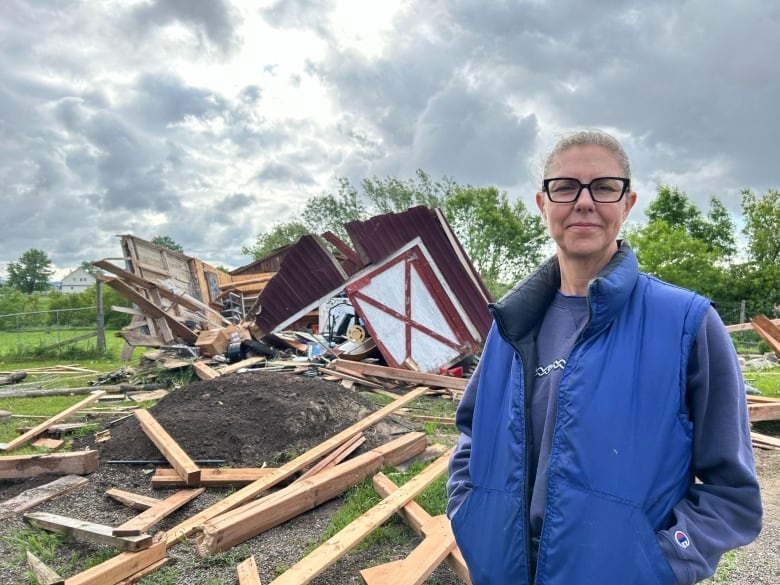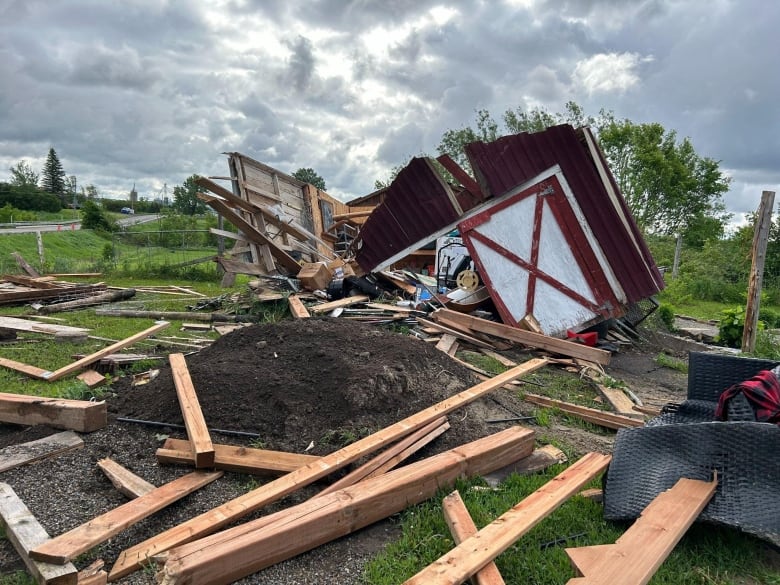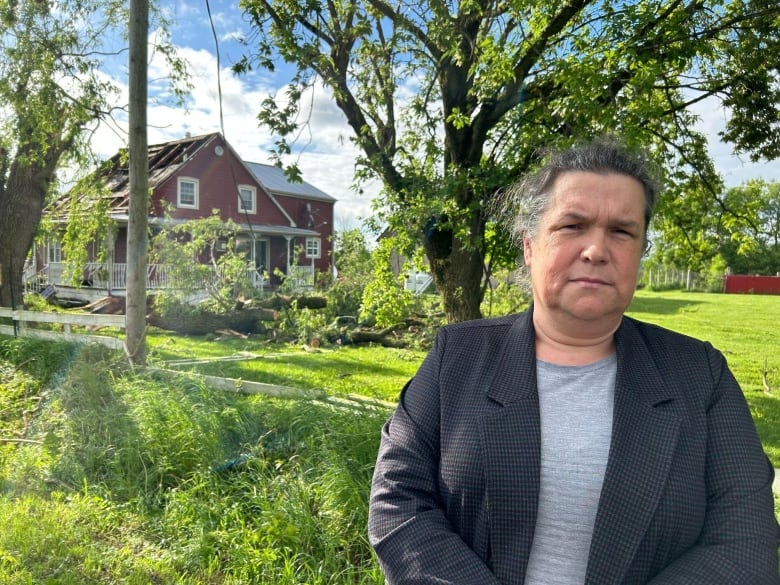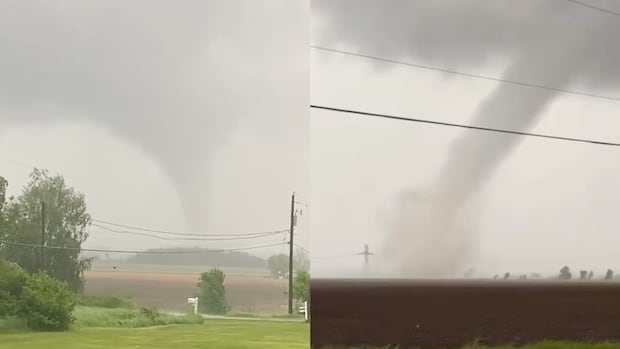Daniel Gelinas saw pieces of his barn fly past his window Monday evening when a tornado touched down near his home in Très-Saint-Rédempteur, Que.
Gelinas and his wife, Julia Asselstine, took it as a sign they needed to take cover immediately.
“It was time to go hide out. Like grab my dog [then] we tossed ourselves into the basement. And by the time we hit the floor and got back up it was done,” said Gelinas.
“It literally took 30 seconds and the roof on the house is gone. The trees, massive trees are all broken and all over the place. Everything that we’ve built is across the yard. It’s all gone.”

Asselstine says she is deeply saddened by the extent of the damage but is focused on rebuilding.
“We will have help,” said Asselstine. “We’ve got this.”
‘A hell of a cleanup job’
Roger Marchlik lives right across the street and describes the storm as “a big eye-opener.”
“We never have tornadoes. And sure enough, it was across the street from my house,” said Marchlik.

Yolande Rondeau didn’t suffer any damage in her home, but says paintings were falling off the wall on Monday night in Très-Saint-Rédempteur, a municipality in southwestern Quebec near the Ontario border.
“It’s unbelievable,” said Rondeau. “We got a hell of a cleanup job to do.”
Having lived in the Niagara Peninsula for years, she says she’s seen her fair share of storms, but “not this bad.”
Environment Canada meteorologist Michèle Fleury says the agency was able to confirm the weather system was a tornado based on video images and the damage reported in the area.
“There were roofs blown off over agricultural buildings and houses and several trees down,” said Fleury.
“We need to see the shape of a tornado but we [also] need evidence that it touched ground. If it didn’t touch ground we just call it a funnel cloud.”
Residents on both sides of the Quebec-Ontario border were able to capture the May 27 twister in videos that are being shared on social media.
Fleury says it is difficult to pinpoint exactly where a tornado will hit, and in Quebec, people do not always get significant lead time.
“If we’re lucky we can get five to 10 minutes,” said Fleury. “You should try to get inside a strongly built room such as a bathroom and get away from windows.”
Ideally, she says those who receive a warning on their phones should seek cover quickly or lie down in a ditch if they are outside.
Rigaud Fire Department acting chief Guillaume Roy says four homes were damaged, including one whose roof was ripped off.
“One garage disappeared and all the chickens in it — we don’t know where it went,” Roy said in a phone interview Monday night.
He said luckily no one was hurt.

Roy said a home in nearby Très-Saint-Rédempteur, which is part of his department’s coverage area, was the first place firefighters were called at 5:33 p.m.
Minutes later, three more houses were hit as the tornado progressed toward Rigaud and then later in the direction of Pointe-Fortune, Que. It appeared a roof had been torn from a barn, while another barn’s roof was partially collapsed, he said. Roy said numerous trees and power lines were down, too.

Tres-Saint-Redempteur Mayor Julie Lemieux says she hopes to see people rebuild and recover from the storm.
“It just reminds us of how much municipalities have to be prepared in civil security,” said Lemieux.
She says this storm was a learning experience and that with the impacts of climate change being felt in communities, citizens should consider having a 72-hour emergency kit at the ready.




